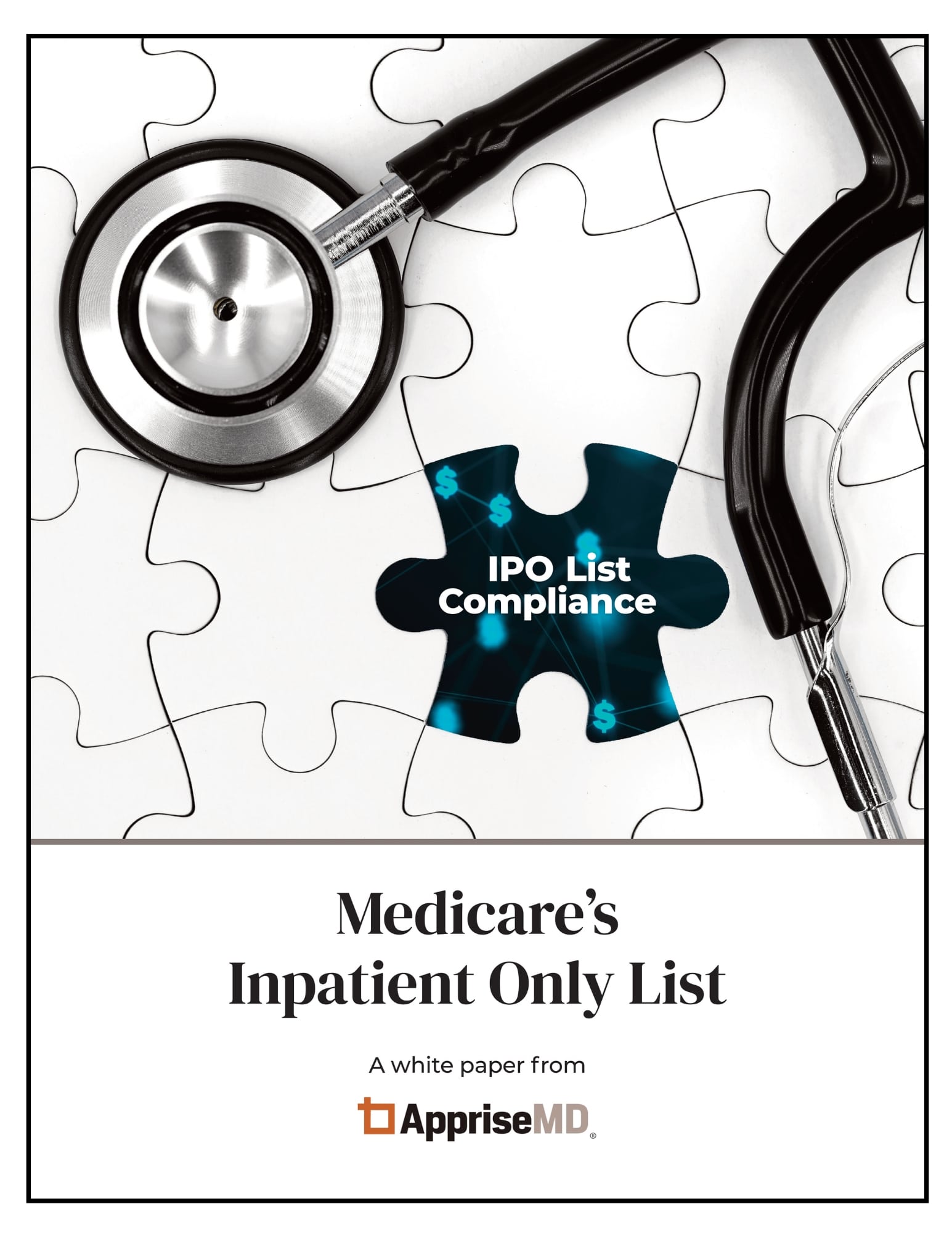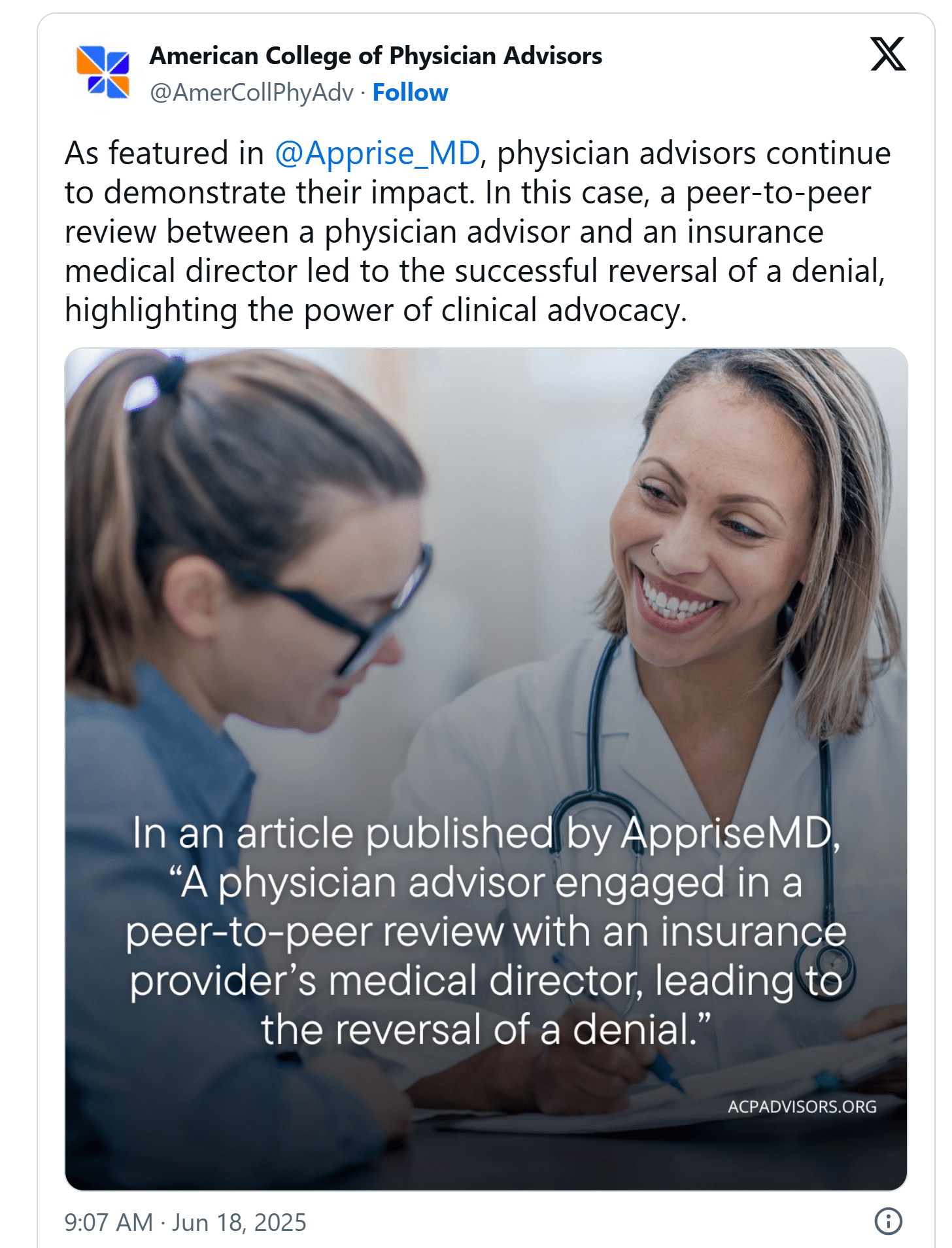AppriseMD Blog
CLINICAL SUMMARY: Post-Surgery Inpatient Admission Deemed Medically Unnecessary Overturned A 52-year-old patient underwent a planned ventral incisional hernia operation, performed laparoscopically using an intraperitoneal onlay mesh placement. The patient was classified as ASA Class III, defined by the American Society for Anesthesiologists (ASA) for patients with “severe systemic disease that is not incapacitating” with a […]
White Papers

The financial impact of the IPO list magnified with the rise of CMS-4201-F, giving rise to inpatient reimbursement for all MAO patients who require services designated on the IPO list. Hospitals need to ensure that the proper setting is scheduled when any Medicare or MA patient undergoes a procedure designated on the IPO list, and they should also follow any proposed additions and removals to the list closely to ensure appropriate treatment and reimbursement.
Case Studies
CLINICAL SUMMARY: A 35-year-old patient arrived in the Emergency Department suffering from a painful abscess and swelling on the left buttock. The patient, whose medical history includes hidradenitis suppurativa, bipolar 1 disorder and asthma, described the pain as an excruciating stabbing sensation rated at a level 10. Furthermore, the patient reported shortness out of breath […]




